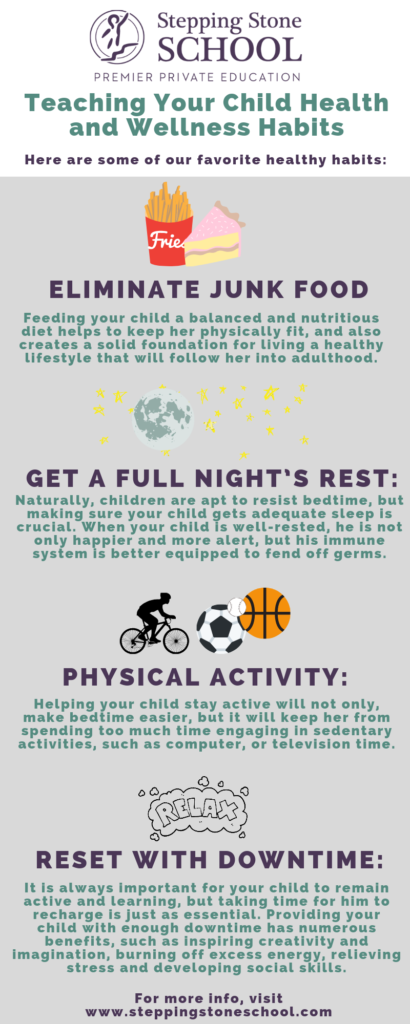Teaching Your Child Health and Wellness Habits
Published on Monday, April 29th, 2019
As a parent, you instinctively want your children to grow up leading happy and healthy lives, while developing good habits. Not only are good eating habits important for a child to learn, but, establishing health and wellness habits that nurture the mind, body and spirit as a whole are significant as well. Teaching your child a healthy routine when he is young can prove to be beneficial for his mental development and encourage a positive relationship with his health. Here are some of our favorite healthy habits:
- Eliminating junk food. Feeding your child a balanced and nutritious diet helps to keep her physically fit, and also creates a solid foundation for living a healthy lifestyle that will follow her into adulthood. Skip the sugary breakfasts and start with whole wheat cereal, oatmeal, fruit or other power foods. In addition, packing a nutritious lunch or talking to your child about making good choices in the cafeteria line is equally important.

- Getting a full night’s rest: Naturally, children are apt to resist bedtime, but making sure your child gets adequate sleep is crucial. When your child is well-rested, he is not only happier and more alert, but his immune system is better equipped to fend off germs. Your child should be getting nine to ten hours of sleep per night. Good sleeping habits can be encouraged by creating and sticking to a routine, such as performing a series of familiar activities leading up to bedtime will make sleeping a habit, rather than a chore.
- Physical activity: Helping your child stay active will not only, make bedtime easier, but it will keep her from spending too much time engaging in sedentary activities, such as computer, or television time. Encourage your child to take part in active play, like jumping rope, and riding bikes. Another way for your child to stay active is to have family fitness activities, like nature walks and bike rides.

- Resetting with downtime: It is always important for your child to remain active and learning, but taking time for him to recharge is just as essential. Providing your child with enough downtime has numerous benefits, such as inspiring creativity and imagination, burning off excess energy, relieving stress and developing social skills.
By creating a routine of these health and wellness practices at home, you will lay the groundwork for your child to live a happy and healthy life.
